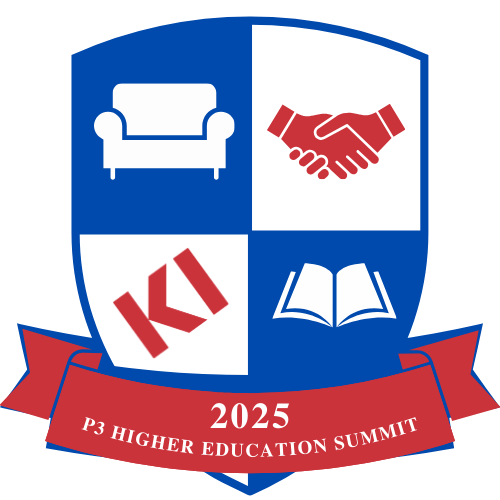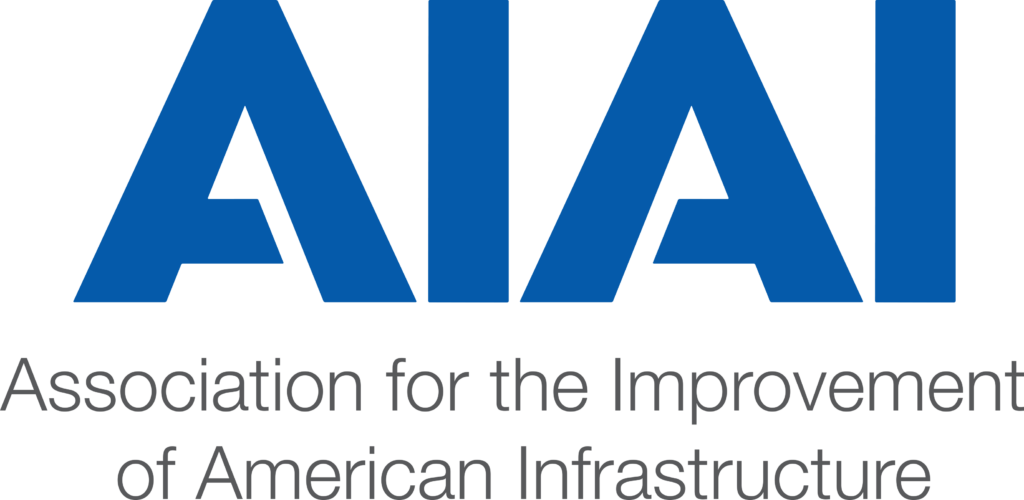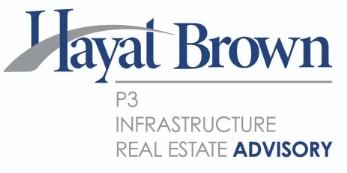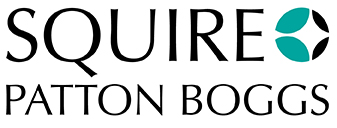
2025 Agenda
Abstract Submission Deadline: June 27, 2026
Last year’s agenda is available below to showcase session topics and speakers.
Sunday, Nov 09
-
2:00 pm — 4:00 pm
TOUR: American University
We’re excited to announce that the 11th annual P3 Higher Education Summit will kick off with an exclusive tour of American University!
As a leader in sustainability, AU is the first urban campus, the first research university, and the largest higher education institution in the United States to achieve carbon neutrality. Join their Office of Sustainability staff on a guided campus tour of AU's green buildings, vegetated roofs, green energy systems, and more.Sign up today and add the tour to your registration!
Already registered? Log in to your registration and add the tour. -
4:30 pm — 8:00 pm
Check-In & Registration
Grand Foyer -
5:00 pm — 6:00 pm
KI Welcome Happy Hour
Penn Avenue TerraceMeet and mingle with fellow attendees at our Welcome Happy Hour, brought to you by KI! Join us at the Penn Avenue Terrace, located on the Lobby Level.

-
6:00 pm — 8:00 pm
Exhibitor Set-Up
Expo Hall -
7:00 pm — 9:00 pm
AIAI Networking Reception (Open to AIAI Members and College/University Attendees)
Penn Avenue TerracePlease join fellow AIAI members and college/university guests for light fare, cocktails and dessert. Click here to register.
Monday, Nov 10
-
7:00 am — 5:45 pm
Check-In & Registration
Grand Foyer -
7:30 am — 8:45 am
P3 101 Questions and Answers Breakfast Workshop (Open to Colleges/Universities Only/Advanced Registration Required)
Salon GJoin industry leaders and AIAI members for breakfast and an interactive conversation specifically tailored to the needs of colleges and universities evaluating P3s. This breakfast workshop is designed for those beginning to explore P3s, helping them understand where P3s are applicable, and how they can save money and time when dealing with upgrades, repairs, and maintenance. Learn when P3s do or do not make sense, and what major considerations need to be made when choosing this route, including the critical first steps. Click here to register.
Moderator:Jenifer Boss, Managing Director, Hayat BrownPanelists:Michael Azzara, National Senior Account Executive, Higher Education & P3, NORESCOArchie Chandrasekhar, Managing Director, Rieth Jones AdvisorsSia Kusha, Senior VP, Group Head Business Development & Partnering, Plenary AmericasJosh Smith, Senior Vice President, Public/Private Partnerships, Hunt CompaniesTom John, Partner, Taft -
7:30 am — 8:45 am
Breakfast Workshop: The National Capital Region of the U.S.: Growing Higher Education Impact Through Public/Private Partnerships, Research Parks and University Expansion
Salon FThe DC-Md-Va (DMV) Region, including the states of Maryland and Virginia, is home to major research universities, including UMD, JHU, Georgetown, Howard, GWU, UVA, George Mason, and Va Tech, along with other colleges and universities, and associated research parks and innovation districts. Increasingly universities across the U.S. are establishing outposts in the DMV to connect with the federal government and provide students and faculty with unique experiences.
Hear how though robust public/private partnerships, research park expansion, college recruitment and consortia, higher education is growing in the National Capital region.
-
8:00 am — 9:00 am
Networking Breakfast
Expo Hall -
9:00 am — 9:15 am
Opening Remarks
Grand Ballroom Salon IThe team from CenTrio will open this year's Summit.
Presenter:Jim Lodge, Chief Revenue Officer, CenTrio -
9:15 am — 10:00 am
Opening Plenary: State of the Market
Grand Ballroom Salon IJoin this dynamic discussion on the current landscape and future outlook for campus infrastructure and capital investment in higher education. The session will delve into the latest trends, opportunities, and challenges shaping the market, including how institutions are navigating financial constraints, evolving campus needs, and the demand for sustainable, resilient infrastructure. Explore innovative financing structures, partnership models, and strategies that are driving successful project delivery and long-term value creation for colleges and universities.
Presenters:Brad Noyes, President, Brailsford & DunlaveyClayton Gibson, Vice President for Finance and Administration and CFO, University of North TexasClayton Hamilton, Senior Associate Vice Chancellor and Chief Administration Officer for Campus Services, University of Arkansas, FayettevilleGordon Merklein, Associate Vice Chancellor for Real Estate & Campus Enterprises, UNC Chapel Hill -
10:00 am — 10:30 am
Networking Break
Expo Hall -
10:30 am — 10:50 am
The Road to Issuance: What it Takes to Get Your Project Ready for the Release of Your RFX
Grand Ballroom Salon IThis opening panel will explore the critical steps a university must take before issuing a solicitation to select a developer for a public-private partnership (P3) project. Topics will include aligning institutional goals, conducting studies, engaging stakeholders, and crafting a transparent procurement strategy. Attendees will gain insights into best practices for internal readiness, procurement frameworks, and market engagement to ensure a successful P3 launch.
-
10:50 am — 11:35 am
Beyond Bricks and Beds: What Makes Education Infrastructure, Infrastructure?
Grand Ballroom Salon IStudent housing and higher education facilities are no longer just real estate – they are essential infrastructure. This panel will unpack the evolving investment thesis that positions education assets alongside ‘traditional’ infrastructure like roads, energy systems, and hospitals. With rising demand, long-term tenancy, and alignment with public policy goals, education infrastructure offers inflation-hedged, resilient returns, and built-in social impact. Panelists will discuss:
- What qualifies student housing and campus facilities as infrastructure
- Financing models that signal infrastructure status
- Resilience, demand drivers, and risk management
- Policy and sustainability alignment
Presenters:Ann Sherman, Executive Vice Chancellor for Finance and Administration, University of Colorado DenverChris Elmore, Vice President, Goldman SachsJensen Clarke, Director, Head of P3 Business Development, FengateMark Walker, Vice President, P3 Investments, FengateStephen Hill, Managing Director, Infrastructure & Public-Private Partnerships, KeyBanc Capital Markets -
11:40 am — 12:45 pm
Innovation Thought Leadership Lunch: Transforming Campus Infrastructure - The Catalyst for Holistic Student Success
Salon FComplete the form here to secure your spot!
Join us for an insightful exploration of how innovative public-private partnerships (P3s) can revolutionize campus infrastructure to foster comprehensive student wellbeing and success. This session will delve into the multifaceted approach to student wellness, as illustrated by the “wellbeing wheel,” encompassing physical, emotional, social, intellectual, occupational, environmental, spiritual, and financial dimensions.
We will explore five P3 strategies that universities are adopting to foster student growth and wellbeing. These strategies encompass housing innovations to enhance student and workforce living experiences, research and innovation districts that provide real-world learning opportunities, the development of 'third spaces' to create vibrant community hubs, workforce housing initiatives to improve student-faculty engagement, and sustainability-focused infrastructure projects that align with environmental goals and student values. These cutting-edge approaches demonstrate how universities are leveraging P3s to create campus environments that holistically support student success across multiple dimensions of wellness.
This innovation lunch will provide valuable insights for campus leaders, administrators, and planners looking to leverage P3s to create wellness-driven campuses that address the evolving needs of today's students. Join us to discover how your institution can shape a campus environment that not only supports academic excellence but also nurtures every aspect of student wellbeing.
-
11:40 am — 12:45 am
Networking Lunch
Expo Hall -
12:45 pm — 1:30 pm
Choices Under Pressure: A University’s Path Through P3 Financing Challenges
Grand Ballroom Salon IWhen markets shift and financing options evolve, campus leaders are faced with complex business and risk choices that extend beyond technical considerations and test an institution's ability to realize its vision. This session will spotlight one university's decision-making process around whether to utilize bond insurance in its P3 transaction to control financing costs and reduce the need for contributions to fill a widening budget gap. It will highlight leadership discussions, trade-offs, and communication required to come to its decision. Attendees will hear firsthand about the factors that shaped the institution's approach, the pressures and challenges created by market volatility, and the strategies leadership used to keep stakeholders aligned. The conversation will provide valuable insights into how higher education leaders can navigate uncertainty while staying grounded in mission priorities.
Moderator:Chelsea Bennett, Vice President, Scion Advisory ServicesPanelists:Abby Benson, Vice President, Administration and Finance, University of Rhode IslandChuck Ellingsworth, Managing Director, Raymond JamesRob Grinnell, Director, Infrastructure Finance, Assured GuarantyTed Risher, Vice President P3 Advisory and Financial Analysis, Scion Advisory ServicesZach Tronti, Development Director, Gilbane Development CompanyHousing -
12:45 pm — 1:30 pm
From Forest to Future: Advancing Student-Centered, Sustainable Infrastructure Across U.S. Campuses
Salon FAs colleges and universities face increasing pressure to align capital investments with sustainability goals and student expectations, forward-thinking institutions are turning to mass timber and prefabrication as tools to achieve both. This session explores how Swinerton and Timberlab partner with higher education clients across the country to deliver next-generation academic, housing, and student life facilities that are not only high-performing and low-carbon, but also deeply student-centered.
Through case studies from diverse geographic and institutional contexts, we’ll share how innovative delivery models, material choices, and prefabricated building systems are being used to accelerate timelines, reduce disruption, and create healthier, more adaptable campus environments. From residence halls to campus offices and facility services buildings to academic spaces, participants will leave with tangible strategies for aligning infrastructure investments with long-term campus resilience and student well-being.
Presenters:Brooke Whitsell, Estimating Manager, TimberlabJ. Todd Petty, PhD, Dean of the Warnell School of Forestry and Natural Resources, University of GeorgiaJames Michael Tate, Associate Professor of Architecture, Texas A&M UniversityWilliam Silva, Regional Director of Preconstruction, SwinertonZach Craun, Associate Partner, COOKFOX ArchitectsCampus Infrastructure -
12:45 pm — 1:30 pm
Anchor Up: Lessons Learned in Creating On Campus Mixed-Use and Entertainment Districts Centered Around Athletics
Salon GIn the new era of collegiate sports, Universities must remain competitive not only in the athletics facilities that they build, but creating destinations that drive economic growth, community engagement and year round activation. Hear insights from universities, developers and advisors that have implemented athletics anchored mixed-use and entertainment districts how lessons learned can be applied at other campuses across the country.
Moderator:Josh Smith, Senior Vice President, Public/Private Partnerships, Hunt CompaniesPanelists:Adam Parker, Senior Vice President, CarterBrett McCormick, Reporter, Sports Business JournelJoe Winters, Vice President, Brailsford and DunlaveyJohn Currie, Vice President & Director of Athletics, Wake Forest UniversityTransforming the Campus Footprint -
1:45 pm — 2:30 pm
Identifying Non-Starters: The Key to Unlocking P3 Developments in Tight Markets
Grand Ballroom Salon IHousing transactions require a vested interest from all partners at the table, but there are limits to what each participant can provide. Quickly identifying the “nos” in a transaction can be critical in getting to a timely and mutually beneficial “yes”. With traditional capital markets tightening, securing financing for housing developments has become increasingly complex. Elevated interest rates, cautious lenders, and shifting priorities have made it harder to execute new projects. This panel will explore the non-starters from the Owner, Developer and Investor perspectives such to navigate to creative solutions across all stakeholders.
-
1:45 pm — 2:30 pm
Reimagining Thermal Energy Networks through Innovative P3 Models
Salon FAs jurisdictions across the country adopt policies to advance thermal energy networks (TENs), higher education institutions find themselves at the forefront of clean energy transformation, but face a paradox. P3 energy projects on campuses are typically designed to modernize thermal generation and distribution while stopping short of becoming regulated utilities. Yet, as campuses grow and interface with surrounding communities, new models can emerge.
This panel will explore how creating a separate thermal energy network entity (distinct from the university itself) can resolve the regulatory and operational barriers institutions traditionally strive to avoid. By positioning the university as either an anchor customer or thermal energy supplier, this structure enables campuses to catalyze broader decarbonization beyond their physical footprint while preserving internal focus and mission and serving their communities.
We'll examine creative financial structures, including off-balance sheet arrangements, shared infrastructure ownership and availability-based payments, as well as long-term O&M strategies to ensure accountability and risk-sharing. The panel will highlight how campuses, developers, and public agencies can leverage these networks as scalable, resilient, and economically viable solutions.
-
1:45 pm — 2:30 pm
Beyond the Classroom: How Education Institutions are Transforming Communities with Housing
Salon GSchool Districts and Universities have long been recognized as anchor institutions, maintaining facilities that define and activate communities by educating and engaging students. Increasingly, these institutions are leveraging their real estate portfolios to encourage direct investment in neighborhoods, often with an emphasis on equitable development. With a focus on workforce, affordable housing, and mixed income housing, panelists will discuss how education institutions are creating private development opportunities that both preserve and thoughtfully transform communities.
Presenters:Affan Sheikh, Director, Hayat BrownFred L. Greene, III, Principal, FLGA DevelopmentFred Missel, Director of Design & Development, UVA FoundationJenifer Boss, Managing Director, Hayat BrownTransforming the Campus Footprint -
2:30 pm — 3:00 pm
Networking Break
Expo Hall -
3:00 pm — 4:00 pm
Roundtables
Expo Hall -
3:00 pm — 4:00 pm
Roundtable #1: Building the Future: LSU's 30-Year Energy Partnership for a Modern and Resilient Campus
This roundtable discussion focuses on CenTrio’s recently completed utility modernization project at Louisiana State University (LSU), executed under a 30-year Concession Agreement with Louisiana’s flagship higher education institution in Baton Rouge. The project included infrastructure modernization and system upgrades to the heating and cooling system, which collectively increased overall system capacity, resiliency, and reliability. This newly updated system serves over 550 buildings, 42,000 students, and all LSU faculty and staff members. We plan to explore LSU’s main motivation for structuring this project as a P3, how CenTrio funded and managed the construction of new facilities, and the nuances of LSU transferring risk and operations responsibility to CenTrio.
Presenters:Adam Weyer, VP Engineering, CenTrioDr. Anzilla Gilmore, Associate Vice President & Chief Facilities Officer, Louisiana State UniversityRichard McCall, VP and General Manager New Orleans/Baton Rouge, CenTrio -
3:00 pm — 4:00 pm
Roundtable #2: Beyond Buildings: Advancing Sustainability Education and Practice in Higher Ed
How can colleges and universities leverage Green Globes assessment and certification to design and operate campuses that are sustainable, resilient, and future ready? This roundtable will explore the role of framework to drive measurable outcomes and examine how faculty training resources and workforce development opportunities can advance sustainability leadership across the institution. Participants will discuss strategies to embed sustainability into planning and operations, strengthen collaboration, and prepare the next generation of leaders through education and professional growth.
-
3:00 pm — 4:00 pm
Roundtable #3: Collaborative Enforcement: Driving P3 Project Value through Key Performance Indicators and Payments
P3s offer opportunities to transfer design, construction, financing and maintenance risks to a private partner and this value is preserved by a combination of collaborative relationships, between owner and partner, and the owner's active management of the contractual performance regime. This round table will explore the contractual tools available to owners to preserve value, and the benefits of risk transfer, including application of availability and noncompliance KPIs and deductions and audit, monitoring and step-in rights. This learning can be applied to all project types including energy, residential and educational infrastructure and research and innovation campuses.
-
3:00 pm — 4:00 pm
Roundtable #4: Parking as a Catalyst – Unlocking Campus Strategic Priorities through Asset Optimization
Parking assets—when managed as part of a broader “Parking as a Service” or “Mobility as a Service” strategy - offer a dependable and adaptable revenue stream that can be strategically aligned with campus development goals.
This approach emphasizes optimization, service improvement, and sustainable asset management. By viewing parking as an integrated mobility service, institutions can enhance user experience, optimize land use, and generate funding for deferred maintenance and new facilities without sacrificing accessibility or campus mission.
-
3:00 pm — 4:00 pm
Roundtable #5: Find Your Champion - or Don't Start the Process
Success in any client relationship often depends on identifying your Champion — the internal advocate who believes in your approach, aligns your goals with theirs, and helps move your solution through organizational barriers. This discussion will focus on recognizing potential champions, engaging them early, and building trust through a deep understanding of client needs and culture. Attendees will gain practical strategies to turn allies into advocates and accelerate project success by ensuring every opportunity has a true champion behind it.
Because without a champion inside the organization, even the best ideas rarely make it past the door. -
3:00 pm — 4:00 pm
Roundtable #6: Enhancing the Campus Dining Experience through Frictionless TechnologyS
Join campus dining leaders from George Washington University and Loyola University Maryland as they share their experiences implementing Amazon's Just Walk Out technology in their campus retail operations. This roundtable session will explore how checkout-free technology complements the traditional campus dining model while meeting the evolving expectations of today's tech-savvy students.
Presenters:Emily Eason, Campus Dining Administrator, George Washington UniversityHardy Meyer, MBA, Global Sales Leader, Just Walk Out Technology by AmazonLindsay Scalf, Partnership Alignment Director, Parkhurst Dining, Loyola University MarylandMike Mansfield, Associate Vice President Auxiliary Operations, Loyola University Maryland -
3:00 pm — 4:00 pm
Roundtable #7: Energizing your Campus: Addressing your On-Campus Needs and Understanding How Alternative Delivery Can Be a Tool in the Toolbelt
As campuses face mounting pressure to modernize infrastructure, decarbonize operations, enhance student experience, and stretch limited capital, institutions are increasingly looking to Public-Private Partnerships (P3) and alternative delivery models to deliver results faster and with greater certainty. This interactive roundtable brings together campus leaders, facilities executives, finance officers, and private-sector partners to explore practical strategies for using P3 and other delivery methods as flexible tools—not one-size-fits-all solutions.
-
3:00 pm — 4:00 pm
Roundtable #8: Innovative Public Finance Solutions for Higher Education Projects
This roundtable will explore how colleges and universities are leveraging innovative public finance tools to deliver complex campus projects amid evolving market conditions. Participants will discuss how to strategically incorporate tax-exempt and taxable bonds, credit enhancements, and hybrid financing models into their capital planning efforts. Attendees will gain insights into how innovative public finance approaches — including the use of tax-exempt debt, taxable structures, and federal incentives — are supporting sustainable, cost-effective campus development and modernization in today’s higher education environment.
-
4:00 pm — 4:45 pm
Beyond the Building: Navigating Risk in Campus-Wide Housing Partnerships
Grand Ballroom Salon IAs universities increasingly turn to public private partnerships (P3s) to address their housing needs, a new model is emerging that goes beyond the development of a single building or facility. This panel discussion will explore the evolving approach of campus-wide housing partnerships, examining the critical differences, benefits, and risks of undertaking an institution’s portfolio as compared to traditional, single-asset P3s. Our experts will discuss the full spectrum of these models, from comprehensive agreements involving full monetization and risk transfer to management-only partnerships. The conversation will cover when a campus-wide partnership makes strategic sense for an institution and the partner selection process that is often different from single-asset P3s. We will also address the capital markets, legal implications, and the opportunities and challenges of these large-scale ventures.
Moderator:Michael Hoffstrom, Associate Director, Rieth Jones AdvisorsPanelists:Erik Elordi, AVP of Campus Services, University of IdahoTim Gigliotti, Managing Director, Radnor Property Group LLCChris Hicks, President and Vice Chairman of the Board, Provident Resources GroupJeremy Biddy, Executive Vice President of Operations, COCMHousing -
4:00 pm — 4:45 pm
Purposeful Partnerships: Structuring Campus Real Estate for Long-Term Value
Salon FThis session will explore how higher education institutions can unlock the full value of their real estate assets through purposeful planning, strategic partnerships, and well-structured legal frameworks. The discussion will focus on legal tools and delivery strategies that support mission-driven redevelopment, adaptive reuse, and long-term stewardship of campus assets.
Moderator:Kimberly Min, Partner, Saul EwingPanelists:Jeffrey Resetco, Senior Development Director, Gilbane Development CompanyNina Farrell, Vice President, Public Institutions & Higher Education, JLLCampus Infrastructure -
5:00 pm — 5:45 pm
Appalachian State’s Multi-Faceted P3 – STEM Academic Building, Faculty & Staff Housing, and District Energy
Grand Ballroom Salon IAppalachian State University is building a new Innovation District on its campus. The initial phase of the Innovation District includes a STEM academic building, on-campus faculty and staff housing, and a new district energy system. The university utilized the public-private-partnership model to finance two-thirds of the project. This panel will focus on describing each of the three components of the project and the various financing structures used.
-
5:45 pm — 6:45 pm
Networking Reception + Higher Education Leadership Forum
Expo HallDuring our networking reception, we will be hosting the 2025 Higher Education Leadership Forum. The Forum is where participating colleges and universities will host their own table, offering a dedicated setting to engage directly with private sector leaders and peers. It’s a dynamic space designed to spark conversation, build relationships, and lay the groundwork for future collaboration.
Tuesday, Nov 11
-
7:30 am — 3:00 pm
Check-In & Registration
Grand Foyer -
8:00 am — 9:00 am
Breakfast Workshop: Beyond the Blueprint: Building Infrastructure That Works for Everyone
Salon FInfrastructure isn't just about concrete and steel - it's about people. The most successful projects don't just meet a need; they create lasting value for the communities they serve. In today's evolving landscape, how can P3s ensure infrastructure investments drive economic growth, workforce development, and community prosperity?
Join industry leaders for this breakfast workshop as we explore how aligning funding, planning, and execution can deliver projects that go beyond just getting built - to making a real and lasting impact. Discover strategies that enhance project success and community acceptance while meeting the priorities of both public and private stakeholders.
Moderator:Chris Dalgarno-Platt, Senior Director, Hayat BrownPanelists:Brian Dugan, Managing Director, Edgemoor Infrastructure & Real EstateColt Little, Vice President for Construction, Facilities & Real Estate, University of FloridaJay Brown, Chairman and Managing Director, Hayat BrownSteve Park, Partner, Ballard Spahr -
8:00 am — 9:00 am
Networking Breakfast
Expo Hall -
9:00 am — 10:00 am
Opening Plenary: Unlocking University Value: A Comparative Look at P3 Concession Models
Grand Ballroom Salon ILeaders from CenTrio, Louisiana State University (LSU), and KeyBanc Capital Markets will compare and contrast several different energy P3 Concession models in the market, highlighting those currently managed by CenTrio. This analysis will highlight advantages of the P3 model, such as flexibility in structure and execution and the ability to address various challenges and goals with innovative methods. These methods support the diverse financial goals of university leaders considering P3 projects. Examples of such primary goals include system monetization through an upfront payment, system modernization under a Design-Build-Finance-Operate-Maintain (DBFOM) model, and hybrid solutions offering an all-inclusive approach.
Presenters:Andres Arbizu, VP of Corporate Development, CenTrioPatrick Martin, Assistant Vice President, Real Estate, Public Partnerships, & Compliance, Louisiana State UniversityNathan Prior, Senior Vice President of Concessions, CenTrioStephen Hill, Managing Director, Infrastructure & Public-Private Partnerships, KeyBanc Capital Markets -
10:00 am — 10:30 am
Networking Break
Expo Hall -
10:30 am — 10:45 am
View from The U
Grand Ballroom Salon I -
10:50 am — 11:35 am
Finding Safe Harbors in Stormy Seas: Strategic Advice for Private Colleges and Universities Navigating Today's Challenging Environment
Grand Ballroom Salon IPrivate colleges and universities are facing one of the most difficult periods in higher education ever experienced. Volatility in cash flow, declining enrollment, shifting endowment contributions, and heightened Department of Education (DOE) scrutiny and general uncertainty have converged to create a perfect storm requiring experienced, agile, informed, and collaborative responses. This session will explore how institutions can leverage external advisors, consultants, financial advisors, and legal counsel along with management, trustees and donors to right-size academic and auxiliary offerings, optimize resource allocation, and proactively manage cash flows and obligations under bonds and other debt instruments while maximizing the value of real estate and other assets.
Attendees will gain actionable insights into:
- Interpreting and responding to DOE regulatory changes and compliance matters, including heightened monitoring and financial responsibility standards.
- Addressing cash flow volatility through short-term and long-term liquidity strategies, including “what if†contingency planning; right sizing and finding funding.
- Navigating donor challenges, with a focus on maximizing contributions with candid and realistic discussions with donors and matching donor objectives with operational needs.
- Developing enrollment management strategies that align with institutional mission and market realities.
- Understanding the role of financial and industry consultants in bolstering credibility with lenders, bondholders, students, faculty and donors in connection with formal academic program review, administrative restructuring, and operational efficiency.
- Managing financial advisors and legal counsel when negotiating with bondholders, restructuring debt, and addressing compliance with continuing disclosure obligations.
Using real-world case studies, this session will empower leaders and trustees of private colleges and universities to develop strategies, make informed decisions, engage stakeholders, and build sustainable financial and operational models for the future.
-
11:40 am — 12:45 pm
Networking Lunch
Expo Hall -
1:40 pm — 2:25 pm
How Deals Evolve Over Time- University of Kentucky’s Three Phase Parking Improvement
Grand Ballroom Salon IUniversity of Kentucky (UK) is undertaking its third parking garage project as a P3 development. In 2018, UK issued an RFP seeking a developer for construction of a mixed-use parking facility, with retail and university space on the first level and parking on upper levels (the Keystone Project). Signet Real Estate Group was chosen as lead developer. The financing involved issuance of tax-exempt and taxable certificates of participation (COP) under a facilities lease to UK. While the developer was charged with development, construction and financing (DBF) of the project, the university elected to retain operation and maintenance (OM) responsibilities. In 2024, UK undertook a second P3 parking garage project, for a new parking facility adjacent to UK’s expanding medical center complex. On June 25, 2025, UK closed the financing for its third P3 parking project, this one involving expansion of an existing parking structure and an adjacent student recreational center. The case study compares and contrasts the three projects and discusses the evolution of financing and development processes across the projects.
-
1:40 pm — 2:25 pm
How an ESPC Helps Right-Size the Campus Building Portfolio During Enrollment Shifts
Salon FChanges in student enrollment have a direct impact on a campus building portfolio; facilities leaders are having to reevaluate campus infrastructure, determining which buildings are essential, which are underutilized, and how to maintain performance with fewer resources. At the same time, they are navigating tight budgets and competing financial priorities, making it increasingly difficult to adapt their infrastructure to shifting needs. As institutions confront aging systems, rising utility costs, and enrollment-driven space demands, they are seeking strategic, financially viable solutions to right-size and modernize their campuses.
Through a public-private partnership known as Energy Savings Performance Contracting (ESPC), higher education institutions can work with an Energy Service Company (ESCO) as a strategic partner to evaluate, optimize, and modernize their building portfolio. ESPCs offer a budget-neutral approach to infrastructure upgrades; projects are paid for through guaranteed energy and operational savings over time, rather than requiring upfront capital. This performance-based model enables campuses to improve efficiency, reduce deferred maintenance, and align facilities with evolving enrollment and academic needs, all while preserving limited financial resources.
This panel session will explore how ESPCs can help higher education institutions adapt to enrollment shifts by aligning infrastructure with current and future needs.
Moderator:Jesse Cabrera, Principal Advisor, Stanley ConsultantsPanelists:Grace Prem, Energy & Infrastructure Associate, Rieth Jones AdvisorsMichael T. Durham, Special Counsel, Energy & Infrastructure Expert, Fishman Haygood, LLPTim Spisak, Director of Development and Engineering, Energy Systems GroupCampus Infrastructure -
12:50 pm — 1:35 pm
Developer-Driven Design-Build: A Successful Delivery of New Housing and Dining at Michigan Technological University
Grand Ballroom Salon IMichigan Technological University recently completed a new residential facility for upper-division students through an innovative procurement approach. Initially conceived as a tax-exempt P3 transaction, the project reverted to on-balance sheet financing after comprehensive financial analysis, including formal indicative rating.
This panel will explore MTU's master plan rationale for pursuing alternative procurement methods and examine feasibility challenges including unique site conditions, programmatic requirements of dining, local construction market constraints, and cost of capital considerations. Project financing risk transfer proved critical to MTU's decision-making process.
Panelists will detail the indicative rating process, its outcomes, and why the University ultimately chose to leverage its own balance sheet and credit while maintaining a developer-driven design-build delivery model. The discussion will cover construction processes, initial operations, and operational adjustments required for managing a facility with construction standards that differed from the University's traditional approach.
MTU representatives will address changes to meal plan design reflecting the new dining approach and lessons learned from this hybrid approach that combined traditional university financing with alternative delivery methods.Presenters:Greg Wachalski, Principal, Wachalski AdvisoryJeremy Doss, Senior Vice President, RISESara Russell, Executive Vice President for Business Development & Transactions, Collegiate Housing FoundationTheresa Coleman-Keiser, Associate Vice President for Auxiliary and Business Services, Michigan Technological UniversityHousing -
2:30 pm — 3:15 pm
Closing Panel: The Final View from the “U” — Leadership Perspectives on the Future of Campus Infrastructure
Grand Ballroom Salon IJoin a candid conversation with senior leaders from colleges and universities across the country as they reflect on the evolving landscape of campus infrastructure and public-private partnerships. This closing panel brings together voices from large public systems, private institutions, and growing regional campuses to explore:
- The most pressing capital and operational challenges they’re facing
- How they’re adapting project planning and delivery in response to enrollment shifts, sustainability goals, and financial pressures
- Lessons learned from recent P3s and where future opportunities lie
- What they look for in a private-sector partner
Leave with a sharper understanding of how higher education leaders are thinking strategically about their physical footprint, long-term partnerships, and the next chapter of institutional growth.
-
3:15 pm
Conference Ends








